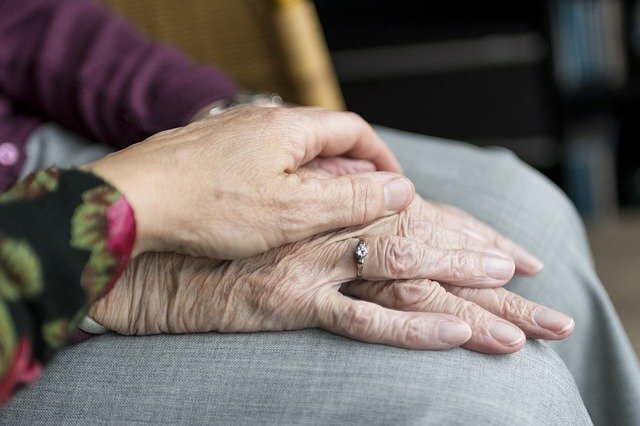The power of kindness
No act of kindness, no matter how small, is ever wasted
Aesop
It's Mental Health Awareness Week and this year the theme is kindness.
What does kindness mean to you?
Mark Rowland, CEO of the Mental Health Foundation said: “Kindness has the potential to bring us together with benefits for everyone, particularly at times of great stress and uncertainty... it unlocks our shared humanity atnd is central for our mental health." Words which resonate with us all.
Love (or kindness) and connection are two universal human needs. These, along with other values like trust, respect, appreciation, safety and acceptance, help us to thrive, to feel fulfilled.
Studies have shown that people who do more acts of kindness are happier and those who experience kindness feel more connected to themselves and others. However, despite this, The Kindness Report published in December 2019 found that 60% of people believe that Britain has become less caring in the last 10 years.
Will the current Covid-19 situation be a catalyst in turning things around? Indeed, there have been many heartfelt and unbelievable acts of kindness from people of all walks of life. Take a moment to reflect on how they make you feel.
The simple act of genuinely asking someone how they are getting on is an act of kindness that has a far greater impact on our sense of wellbeing and connection than we think.
Kindness makes us emotionally robust and positive. Research shows that people who practice kindness, friendliness, respect and appreciation towards self and others are better able to acknowledge their mistakes, imperfections and negative actions, to learn from them and to change for the better, than those who hadn’t done so. This is because having a positive attitude towards themselves allowed them to admit to their failings and those of others without being overwhelmed by negative emotions.
Kindness fosters mental and emotional resilience
What’s more, when we practice kindness something profound also happens at the physiological level. In bringing more kindness into our life – by repeatedly practicing bringing a kind, respectful and friendly attitude to ourselves and others, we bring about chemical and structural changes to our brain that will help to establish ‘kindness circuits’ – the creation of millions of new connections (neuropathways) in the pre-fontal cortex of the brain - wiring our brain for more kindness. This, in turn increases the amount of positive emotion (mental and emotional resilience) in our day-to-day experience which can help us better deal and move through difficult and rough periods in our life like the one we are all having to face and deal with now.
Tips of how to practice acts of kindness:
It’s important to practice regularly to change the brain - just like we need to exercise regularly to change the muscles in the body.
First, we need to start with ourselves: practicing kindness to yourself for 10 minutes or more daily (You can also download my free resource Practicing Self-kindness outlining these three simple steps).
Practicing kindness to self - three simple steps:
Awareness
Ask yourself: How do I treat myself? What critical, harsh or judgmental thoughts am I saying to myself? How does it feel in the body? What effect does it have on me? How do I feel emotionally?
Pausing
Take 3-5 slightly more extended in and out breaths. Feel the breath in your body and your feet on the ground.
Be your own best friend
Ask yourself: Is it true that I am, for example, not good enough, stupid, pathetic, ridiculous, an idiot…? The answer is almost always: No. Turn your critical voice into a friend’s voice. For example: “I am enough, I do the best I can, I am human, it’s okay to have a difficult time…”
Notice the effect of this practice.
Do 1-3 kind acts for others, family members, friends, colleagues, neighbours daily - we already do kind deeds but here we are making the kind actions more intentional, conscious and regular rather than keeping them random. For example:
How are you doing? Are you okay?'. Listen deeply, give your time, empathy and understanding without needing to fix anything or find a solution. Just listen.
Make time for people you love.
Show appreciation - a phone call, a compliment, some nice chocolate, home baked cake, a card.
Smile. Wish someone well. Notice the effect and how you feel.
Donate to a local food bank.
Offer someone your place in the queue.
When you book a yoga class, course or event, pay a place forward for someone who can’t afford a class or training course right now.
Share words of encouragement. You never know who might need them.
Put your skills to work for someone in need. For example, sorting out someone’s computer, or setting up a wifi booster, or doing some DIY or helping a friend with their CV.
The beauty of acts of kindness is that they benefit the giver and the receiver. Keep in touch. Let me know how kindness affects your week.
Need a little help to practice self-kindness, to feel resilient during lockdown?
Give me a call to arrange your free initial coaching conversation today on 07815 591279 or email me.
Also, my Free Resources offer many practical tools and guided mindfulness practices to enrich and enhance your day-to-day life.



